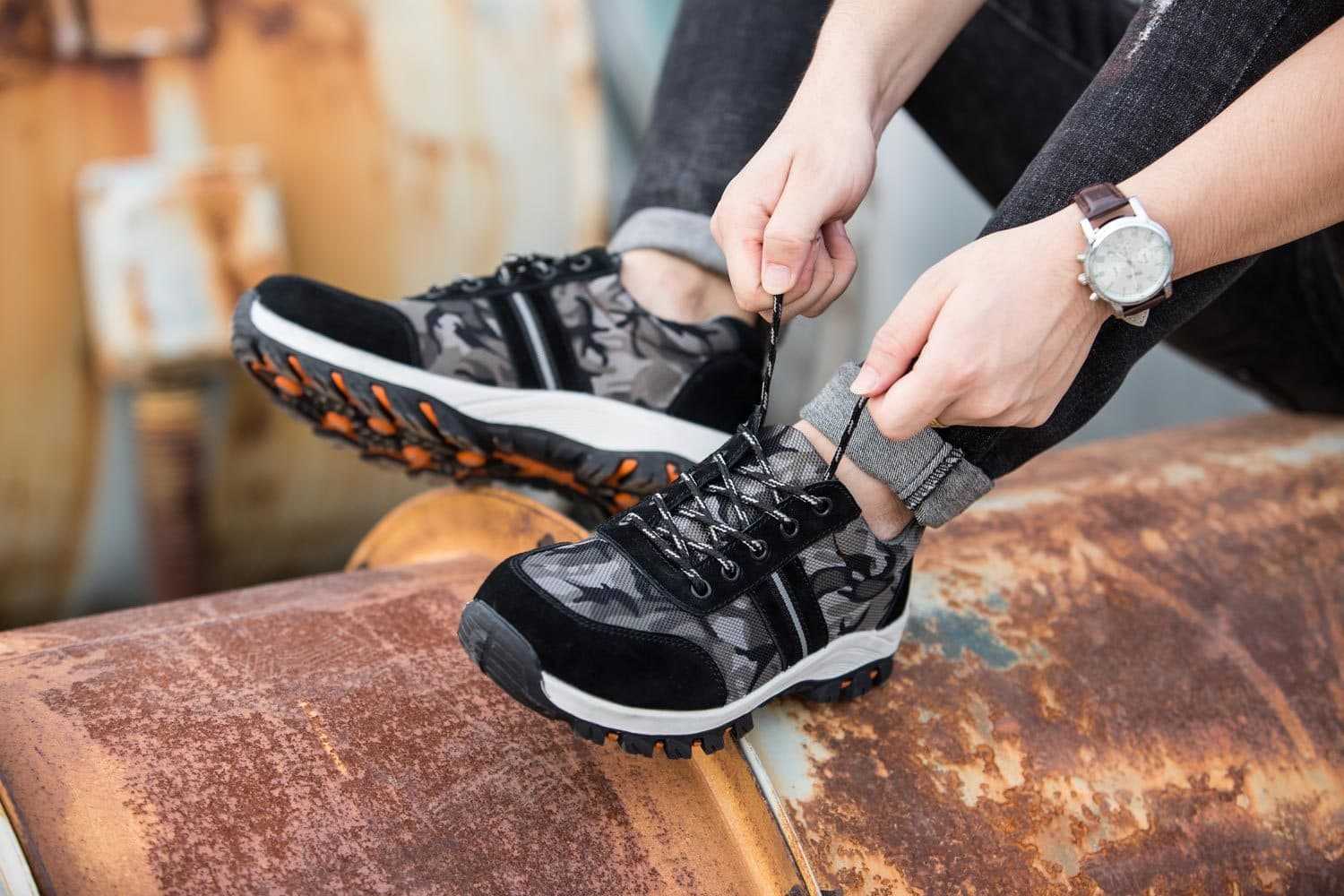Why Slip and Oil Resistant Work Shoes Matter
In hazardous work environments, the risk of slips, trips, and falls is a constant threat. According to the Bureau of Labor Statistics, over 25,000 workers suffer from slip, trip, and fall injuries every year, resulting in millions of dollars in medical costs and lost productivity. One of the most effective ways to mitigate this risk is by wearing slip and oil resistant work shoes. These specialized shoes are designed to provide traction, stability, and protection on slippery surfaces, reducing the likelihood of accidents and injuries. Without proper footwear, workers are more susceptible to injuries, which can result in long-term disabilities, medical expenses, and even fatalities. In fact, many industries, such as construction, manufacturing, and food service, require workers to wear slip and oil resistant work shoes as a mandatory safety precaution. By prioritizing workplace safety and investing in high-quality slip and oil resistant work shoes, employers can demonstrate their commitment to protecting their employees’ well-being and creating a safer work environment.
What Makes a Good Slip and Oil Resistant Work Shoe?
When it comes to selecting the right slip and oil resistant work shoes, there are several key features to look for. A good slip and oil resistant work shoe should have a durable outsole made from materials such as rubber or polyurethane, which provide excellent traction on slippery surfaces. The tread pattern is also crucial, as it helps to channel liquids away from the foot and provide stability. Look for shoes with deep grooves and lugs that can grip the floor effectively. Additionally, the upper material should be breathable, waterproof, and easy to clean. This will help to keep the foot dry and comfortable, even in wet or oily conditions. Other important features to consider include a comfortable fit, ankle support, and a slip-resistant sole that meets industry standards. By considering these factors, workers can choose slip and oil resistant work shoes that provide the protection and comfort they need to perform their jobs safely and effectively.
How to Choose the Best Slip and Oil Resistant Work Shoes for Your Job
Choosing the right slip and oil resistant work shoes for your job can be a daunting task, especially with the numerous options available in the market. However, by considering a few key factors, workers can make an informed decision that meets their specific needs. First, identify the hazards present in your workplace, such as oil, water, or slippery surfaces. This will help you determine the level of slip resistance and protection required. Next, consider the type of job you do and the activities you will be performing while wearing the shoes. For example, construction workers may require shoes with added ankle support and protection, while food service workers may need shoes that are easy to clean and resistant to grease. Additionally, think about the comfort and fit of the shoes, as well as any specific features you may need, such as insulation or waterproofing. By taking these factors into account, workers can select slip and oil resistant work shoes that provide the protection, comfort, and support they need to perform their jobs safely and effectively.
Top Picks: Dr. Martens and Timberland Slip and Oil Resistant Work Shoes
When it comes to slip and oil resistant work shoes, two brands stand out for their quality and performance: Dr. Martens and Timberland. Both brands offer a range of styles and features that cater to different occupations and industries. Dr. Martens, for example, is known for its iconic air-cushioned sole, which provides excellent slip resistance and comfort. Their Ironbridge line, in particular, is popular among workers in the construction and manufacturing industries. Timberland, on the other hand, offers a range of slip and oil resistant work shoes with advanced features such as anti-fatigue technology and breathable membranes. Their PRO Boondock line is a favorite among outdoor workers, such as loggers and landscapers. Both brands have received excellent customer reviews, with workers praising their durability, comfort, and slip resistance. When choosing between Dr. Martens and Timberland slip and oil resistant work shoes, consider the specific features and benefits that matter most to your job and work environment. By selecting a high-quality pair from either brand, workers can trust that their feet will be protected and comfortable all day long.
Slip and Oil Resistant Work Shoes for Specific Industries
Different industries present unique challenges and hazards, and workers need slip and oil resistant work shoes that cater to their specific needs. For example, oil rig workers require shoes with exceptional slip resistance and protection from oil and chemicals. In this case, shoes with a rugged outsole and a breathable, chemical-resistant upper material are ideal. Warehouse workers, on the other hand, need shoes that provide excellent traction on smooth surfaces and protection from heavy objects. Shoes with a slip-resistant sole and a sturdy upper material, such as leather or synthetic materials, are suitable for this industry. In the food service industry, workers need shoes that are easy to clean, resistant to grease and oil, and provide excellent slip resistance. Shoes with a slip-resistant sole and a waterproof, easy-to-clean upper material are perfect for this industry. By understanding the specific hazards and requirements of their industry, workers can choose slip and oil resistant work shoes that provide the protection, comfort, and support they need to perform their jobs safely and effectively.
Breaking in Your New Slip and Oil Resistant Work Shoes
Breaking in a new pair of slip and oil resistant work shoes can take some time, but with the right approach, workers can ensure a comfortable and safe fit from day one. The first step is to wear the shoes for short periods, gradually increasing the duration over time. This allows the shoes to mold to the feet and reduces the risk of discomfort or blisters. It’s also essential to wear the same type of socks or insoles that will be worn on the job to ensure a proper fit. To extend the lifespan of slip and oil resistant work shoes, workers should clean them regularly with a mild detergent and water, and apply a waterproofing treatment to protect the materials. Additionally, storing the shoes in a cool, dry place away from direct sunlight can help prevent damage to the materials. By following these simple tips, workers can break in their new slip and oil resistant work shoes quickly and easily, ensuring a safe and comfortable fit that lasts all day long.
Slip and Oil Resistant Work Shoes: A Worthwhile Investment
Investing in high-quality slip and oil resistant work shoes is a crucial decision for workers in hazardous environments. While it may seem like an added expense, the long-term benefits of improved safety, comfort, and productivity far outweigh the costs. Slip and oil resistant work shoes provide a safe and stable footing, reducing the risk of slips, trips, and falls, and the subsequent injuries and downtime. Additionally, they offer comfort and support, allowing workers to focus on their tasks without distraction. By choosing the right slip and oil resistant work shoes for their job, workers can enjoy improved overall well-being, increased job satisfaction, and enhanced productivity. Furthermore, employers can benefit from reduced workers’ compensation claims, lower insurance premiums, and improved workplace morale. In the long run, investing in high-quality slip and oil resistant work shoes is a worthwhile investment that pays dividends in terms of safety, comfort, and productivity.
Conclusion: Step Up Your Workplace Safety with Confidence
In conclusion, slip and oil resistant work shoes are a crucial component of a safe and healthy work environment. By understanding the importance of wearing slip and oil resistant work shoes, knowing what to look for in a good pair, and selecting the right shoes for their job, workers can significantly reduce the risk of slips, trips, and falls. Additionally, investing in high-quality slip and oil resistant work shoes can lead to improved comfort, productivity, and overall well-being. Remember, prioritizing workplace safety is essential, and choosing the right slip and oil resistant work shoes is a critical step in that process. With the right footwear, workers can step up their workplace safety with confidence and focus on getting the job done.







